- Home
- Nora Roberts
In the Garden Trilogy Page 2
In the Garden Trilogy Read online
Page 2
“That’s right.” And it was the look that came into her eyes that had Gavin dropping his. “And if you’re going to be a baby, too, you can be a baby in your room. Alone.”
“It was a stupid house.”
“Nuh-uh! Mom.” Luke took Stella’s face in both his hands, looked at her with those avid, swimming eyes. “It was good.”
“You can build an even better one. Okay? Gavin, leave him alone. I’m not kidding. I’m busy in the kitchen, and Daddy’s going to be home soon. Do you want to be punished for his welcome home?”
“No. I can’t do anything.”
“That’s too bad. It’s really a shame you don’t have any toys.” She set Luke down. “Build your house, Luke. Leave his blocks alone, Gavin. If I have to come in here again, you’re not going to like it.”
“I want to go outside!” Gavin mourned at her retreating back.
“Well, it’s raining, so you can’t. We’re all stuck in here, so behave.”
Flustered, she went back to the cookbook, tried to clear her head. In an irritated move, she snapped on the kitchen TV. God, she missed Kevin. The boys had been cranky all afternoon, and she felt rushed and harried and overwhelmed. With Kevin out of town these last four days she’d been scrambling around like a maniac. Dealing with the house, the boys, her job, all the errands alone.
Why was it that the household appliances waited, just waited, to go on strike when Kevin left town? Yesterday the washer had gone buns up, and just that morning the toaster oven had fried itself.
They had such a nice rhythm when they were together, dividing up the chores, sharing the discipline and the pleasure in their sons. If he’d been home, he could have sat down to play with—and referee—the boys while she cooked.
Or better, he’d have cooked and she’d have played with the boys.
She missed the smell of him when he came up behind her to lean down and rub his cheek over hers. She missed curling up to him in bed at night, and the way they’d talk in the dark about their plans, or laugh at something the boys had done that day.
For God’s sake, you’d think the man had been gone four months instead of four days, she told herself.
She listened with half an ear to Gavin trying to talk Luke into building a skyscraper that they could both wreck as she stirred her cream sauce and watched the wind swirl leaves outside the window.
He wouldn’t be traveling so much after he got his promotion. Soon, she reminded herself. He’d been working so hard, and he was right on the verge of it. The extra money would be handy, too, especially when they had another child—maybe a girl this time.
With the promotion, and her working full-time again, they could afford to take the kids somewhere next summer. Disney World, maybe. They’d love that. Even if she were pregnant, they could manage it. She’d been squirreling away some money in the vacation fund—and the new-car fund.
Having to buy a new washing machine was going to seriously damage the emergency fund, but they’d be all right.
When she heard the boys laugh, her shoulders relaxed again. Really, life was good. It was perfect, just the way she’d always imagined it. She was married to a wonderful man, one she’d fallen for the minute she’d set eyes on him. Kevin Rothchild, with his slow, sweet smile.
They had two beautiful sons, a pretty house in a good neighborhood, jobs they both loved, and plans for the future they both agreed on. And when they made love, bells still rang.
Thinking of that, she imagined his reaction when, with the kids tucked in for the night, she slipped into the sexy new lingerie she’d splurged on in his absence.
A little wine, a few candles, and ...
The next, bigger crash had her eyes rolling toward the ceiling. At least this time there were cheers instead of wails.
“Mom! Mom!” Face alive with glee, Luke rushed in. “We wrecked the whole building. Can we have a cookie?”
“Not this close to dinner.”
“Please, please, please, please!”
He was pulling on her pants now, doing his best to climb up her leg. Stella set the spoon down, nudged him away from the stove. “No cookies before dinner, Luke.”
“We’re starving.” Gavin piled in, slamming his cars together. “How come we can’t eat something when we’re hungry? Why do we have to eat the stupid fredo anyway?”
“Because.” She’d always hated that answer as a child, but it seemed all-purpose to her now.
“We’re all eating together when your father gets home.” But she glanced out the window and worried that his plane would be delayed. “Here, you can split an apple.”
She took one out of the bowl on the counter and grabbed a knife.
“I don’t like the peel,” Gavin complained.
“I don’t have time to peel it.” She gave the sauce a couple of quick stirs. “The peel’s good for you.” Wasn’t it?
“Can I have a drink? Can I have a drink, too?” Luke tugged and tugged. “I’m thirsty.”
“God. Give me five minutes, will you? Five minutes. Go, go build something. Then you can have some apple slices and juice.”
Thunder boomed, and Gavin responded to it by jumping up and down and shouting, “Earthquake!”
“It’s not an earthquake.”
But his face was bright with excitement as he spun in circles, then ran from the room. “Earthquake! Earthquake!”
Getting into the spirit, Luke ran after him, screaming.
Stella pressed a hand to her pounding head. The noise was insane, but maybe it would keep them busy until she got the meal under control.
She turned back to the stove, and heard, without much interest, the announcement for a news bulletin.
It filtered through the headache, and she turned toward the set like an automaton.
Commuter plane crash. En route to Detroit Metro from Lansing. Ten passengers on board.
The spoon dropped out of her hand. The heart dropped out of her body.
Kevin. Kevin.
Her children screamed in delighted fear, and thunder rolled and burst overhead. In the kitchen, Stella slid to the floor as her world fractured.
THEY CAME TO TELL HER KEVIN WAS DEAD. STRANGERS at her door with solemn faces. She couldn’t take it in, couldn’t believe it. Though she’d known. She’d known the minute she heard the reporter’s voice on her little kitchen television.
Kevin couldn’t be dead. He was young and healthy. He was coming home, and they were having chicken Alfredo for dinner.
But she’d burned the sauce. The smoke had set off the alarms, and there was nothing but madness in her pretty house.
She had to send her children to her neighbor’s so it could be explained to her.
But how could the impossible, the unthinkable ever be explained?
A mistake. The storm, a strike of lightning, and everything changed forever. One instant of time, and the man she loved, the father of her children, no longer lived.
Is there anyone you’d like to call?
Who would she call but Kevin? He was her family, her friend, her life.
They spoke of details that were like a buzz in her brain, of arrangements, of counseling. They were sorry for her loss.
They were gone, and she was alone in the house she and Kevin had bought when she’d been pregnant with Luke. The house they’d saved for, and painted, and decorated together. The house with the gardens she’d designed herself.
The storm was over, and it was quiet. Had it ever been so quiet? She could hear her own heartbeat, the hum of the heater as it kicked on, the drip of rain from the gutters.
Then she could hear her own keening as she collapsed on the floor by her front door. Lying on her side, she gathered herself into a ball in defense, in denial. There weren’t tears, not yet. They were massed into some kind of hard, hot knot inside her. The grief was so deep, tears couldn’t reach it. She could only lie curled up there, with those wounded-animal sounds pouring out of her throat.
It was dark when she pushed h
erself to her feet, swaying, light-headed and ill. Kevin. Somewhere in her brain his name still, over and over and over.
She had to get her children, she had to bring her children home. She had to tell her babies.
Oh, God. Oh, God, how could she tell them?
She groped for the door, stepped out into the chilly dark, her mind blessedly blank. She left the door open at her back, walked down between the heavy-headed mums and asters, past the glossy green leaves of the azaleas she and Kevin had planted one blue spring day.
She crossed the street like a blind woman, walking through puddles that soaked her shoes, over damp grass, toward her neighbor’s porch light.
What was her neighbor’s name? Funny, she’d known her for four years. They carpooled, and sometimes shopped together. But she couldn’t quite remember....
Oh, yes, of course. Diane. Diane and Adam Perkins, and their children, Jessie and Wyatt. Nice family, she thought dully. Nice, normal family. They’d had a barbecue together just a couple weeks ago. Kevin had grilled chicken. He loved to grill. They’d had some good wine, some good laughs, and the kids had played. Wyatt had fallen and scraped his knee.
Of course she remembered.
But she stood in front of the door not quite sure what she was doing there.
Her children. Of course. She’d come for her children. She had to tell them....
Don’t think. She held herself hard, rocked, held in. Don’t think yet. If you think, you’ll break apart. A million pieces you can never put together again.
Her babies needed her. Needed her now. Only had her now.
She bore down on that hot, hard knot and rang the bell.
She saw Diane as if she were looking at her through a thin sheen of water. Rippling, and not quite there. She heard her dimly. Felt the arms that came around her in support and sympathy.
But your husband’s alive, you see, Stella thought. Your life isn’t over. Your world’s the same as it was five minutes ago. So you can’t know. You can’t.
When she felt herself begin to shake, she pulled back. “Not now, please. I can’t now. I have to take the boys home.”
“I can come with you.” There were tears on Diane’s cheeks as she reached out, touched Stella’s hair. “Would you like me to come, to stay with you?”
“No. Not now. I need ... the boys.”
“I’ll get them. Come inside, Stella.”
But she only shook her head.
“All right. They’re in the family room. I’ll bring them. Stella, if there’s anything, anything at all. You’ve only to call. I’m sorry. I’m so sorry.”
She stood in the dark, looking in at the light, and waited.
She heard the protests, the complaints, then the scrambling of feet. And there were her boys—Gavin with his father’s sunny hair, Luke with his father’s mouth.
“We don’t want to go yet,” Gavin told her. “We’re playing a game. Can’t we finish?”
“Not now. We have to go home now.”
“But I’m winning. It’s not fair, and—”
“Gavin. We have to go.”
“Is Daddy home?”
She looked down at Luke, his happy, innocent face, and nearly broke. “No.” Reaching down, she picked him up, touched her lips to the mouth that was so like Kevin’s. “Let’s go home.”
She took Gavin’s hand and began the walk back to her empty house.
“If Daddy was home, he’d let me finish.” Cranky tears smeared Gavin’s voice. “I want Daddy.”
“I know. I do too.”
“Can we have a dog?” Luke wanted to know, and turned her face to his with his hands. “Can we ask Daddy? Can we have a dog like Jessie and Wyatt?”
“We’ll talk about it later.”
“I want Daddy,” Gavin said again, with a rising pitch in his voice.
He knows, Stella thought. He knows something is wrong, something’s terribly wrong. I have to do this. I have to do it now.
“We need to sit down.” Carefully, very carefully, she closed the door behind her, carried Luke to the couch. She sat with him in her lap and laid her arm over Gavin’s shoulder.
“If I had a dog,” Luke told her soberly, “I’d take care of him. When’s Daddy coming?”
“He can’t come.”
“ ’Cause of the busy trip?”
“He ...” Help me. God, help me do this. “There was an accident. Daddy was in an accident.”
“Like when the cars smash?” Luke asked, and Gavin said nothing, nothing at all as his eyes burned into her face.
“It was a very bad accident. Daddy had to go to heaven.”
“But he has to come home after.”
“He can’t. He can’t come home anymore. He has to stay in heaven now.”
“I don’t want him there.” Gavin tried to wrench away, but she held him tightly. “I want him to come home now.”
“I don’t want him there either, baby. But he can’t come back anymore, no matter how much we want it.”
Luke’s lips trembled. “Is he mad at us?”
“No. No, no, no, baby. No.” She pressed her face to his hair as her stomach pitched and what was left of her heart throbbed like a wound. “He’s not mad at us. He loves us. He’ll always love us.”
“He’s dead.” There was fury in Gavin’s voice, rage on his face. Then it crumpled, and he was just a little boy, weeping in his mother’s arms.
She held them until they slept, then carried them to her bed so none of them would wake alone. As she had countless times before, she slipped off their shoes, tucked blankets around them.
She left a light burning while she walked—it felt like floating—through the house, locking doors, checking windows. When she knew everything was safe, she closed herself into the bathroom. She ran a bath so hot the steam rose off the water and misted the room.
Only when she slipped into the tub, submerged herself in the steaming water, did she allow that knot to snap. With her boys sleeping, and her body shivering in the hot water, she wept and wept and wept.
SHE GOT THROUGH IT. A FEW FRIENDS SUGGESTED SHE might take a tranquilizer, but she didn’t want to block the feelings. Nor did she want to have a muzzy head when she had her children to think of.
She kept it simple. Kevin would have wanted simple. She chose every detail—the music, the flowers, the photographs—of his memorial service. She selected a silver box for his ashes and planned to scatter them on the lake. He’d proposed to her on the lake, in a rented boat on a summer afternoon.
She wore black for the service, a widow of thirty-one, with two young boys and a mortgage, and a heart so broken she wondered if she would feel pieces of it piercing her soul for the rest of her life.
She kept her children close, and made appointments with a grief counselor for all of them.
Details. She could handle the details. As long as there was something to do, something definite, she could hold on. She could be strong.
Friends came, with their sympathy and covered dishes and teary eyes. She was grateful to them more for the distraction than the condolences. There was no condolence for her.
Her father and his wife flew up from Memphis, and them she leaned on. She let Jolene, her father’s wife, fuss over her, and soothe and cuddle the children, while her own mother complained about having to be in the same room as that woman.
When the service was over, after the friends drifted away, after she clung to her father and Jolene before their flight home, she made herself take off the black dress.
She shoved it into a bag to send to a shelter. She never wanted to see it again.
Her mother stayed. Stella had asked her to stay a few days. Surely under such circumstances she was entitled to her mother. Whatever friction was, and always had been, between them was nothing compared with death.
When she went into the kitchen, her mother was brewing coffee. Stella was so grateful not to have to think of such a minor task, she crossed over and kissed Carla’s cheek.
“Thanks. I’m so sick of tea.”
“Every time I turned around that woman was making more damn tea.”
“She was trying to help, and I’m not sure I could’ve handled coffee until now.”
Carla turned. She was a slim woman with short blond hair. Over the years, she’d battled time with regular trips to the surgeon. Nips, tucks, lifts, injections had wiped away some of the years. And left her looking whittled and hard, Stella thought.
She might pass for forty, but she’d never look happy about it.
“You always take up for her.”
“I’m not taking up for Jolene, Mom.” Wearily, Stella sat. No more details, she realized. No more something that has to be done.
How would she get through the night?
“I don’t see why I had to tolerate her.”
“I’m sorry you were uncomfortable. But she was very kind. She and Dad have been married for, what, twenty-five years or so now. You ought to be used to it.”
“I don’t like having her in my face, her and that twangy voice. Trailer trash.”
Stella opened her mouth, closed it again. Jolene hadn’t come from a trailer park and was certainly not trash. But what good would it do to say so? Or to remind her mother that she’d been the one who’d wanted a divorce, the one to leave the marriage. Just as it wouldn’t do any good to point out that Carla had been married twice since.
“Well, she’s gone now.”
“Good riddance.”
Stella took a deep breath. No arguments, she thought, as her stomach clenched and unclenched like a fist. Too tired to argue.
“The kids are sleeping. They’re just worn out. Tomorrow ... we’ll just deal with tomorrow. I guess that’s the way it’s going to be.” She let her head fall back, closed her eyes. “I keep thinking this is a horrible dream, and I’ll wake up any second. Kevin will be here. I don’t ... I can’t imagine life without him. I can’t stand to imagine it.”
The tears started again. “Mom, I don’t know what I’m going to do.”
“Had insurance, didn’t he?”
Stella blinked, stared as Carla set a cup of coffee in front of her. “What?”
“Life insurance. He was covered?”

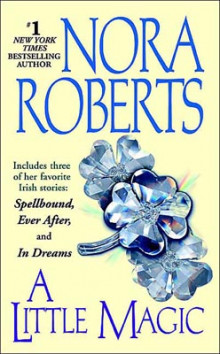 A Little Magic
A Little Magic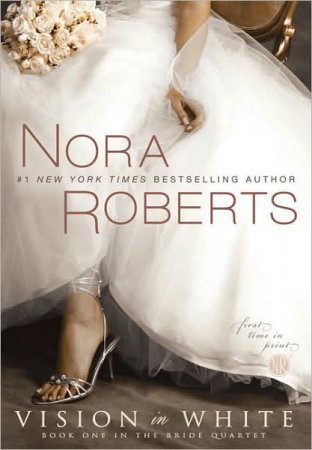 Vision in White
Vision in White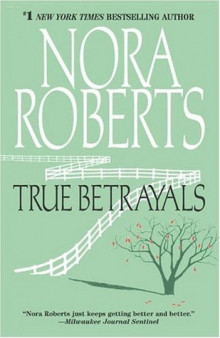 True Betrayals
True Betrayals The Next Always
The Next Always A Man for Amanda
A Man for Amanda Born in Fire
Born in Fire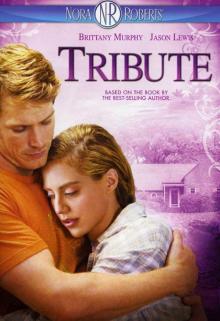 Tribute
Tribute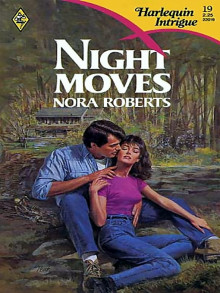 Night Moves
Night Moves Dance Upon the Air
Dance Upon the Air The Name of the Game
The Name of the Game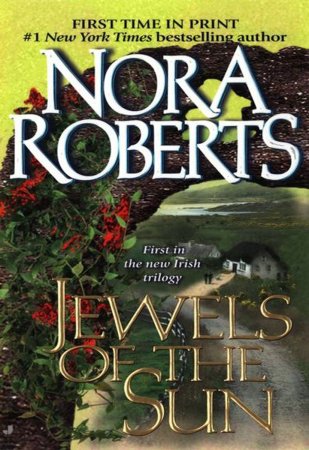 Jewels of the Sun
Jewels of the Sun River's End
River's End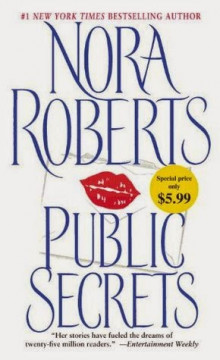 Public Secrets
Public Secrets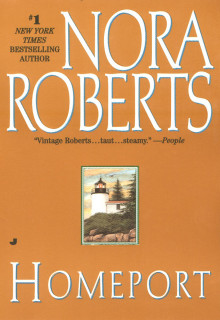 Homeport
Homeport Private Scandals
Private Scandals The Witness
The Witness Blithe Images
Blithe Images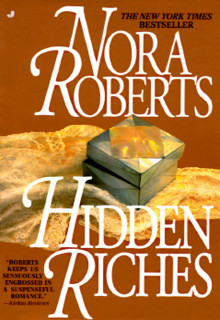 Hidden Riches
Hidden Riches Key of Light
Key of Light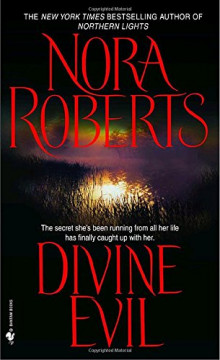 Divine Evil
Divine Evil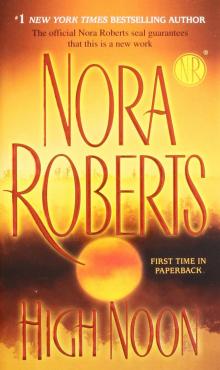 High Noon
High Noon Blue Dahlia
Blue Dahlia Sea Swept
Sea Swept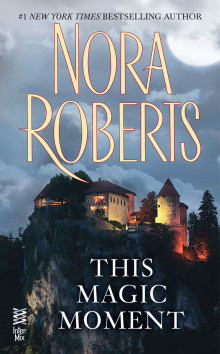 This Magic Moment
This Magic Moment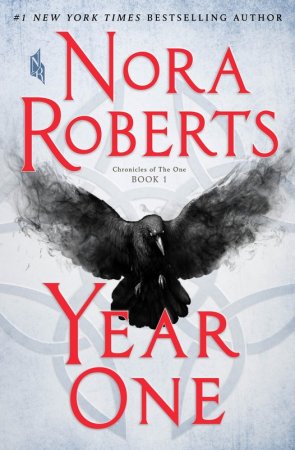 Year One
Year One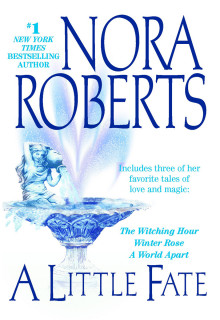 A Little Fate
A Little Fate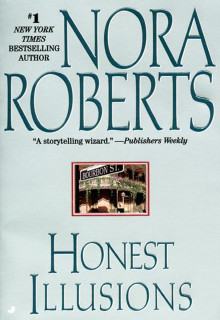 Honest Illusions
Honest Illusions The Reef
The Reef Shelter in Place
Shelter in Place The Hollow
The Hollow Holding the Dream
Holding the Dream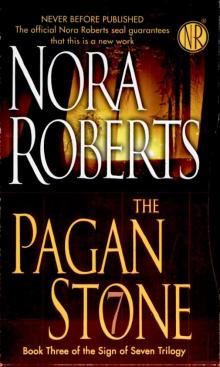 The Pagan Stone
The Pagan Stone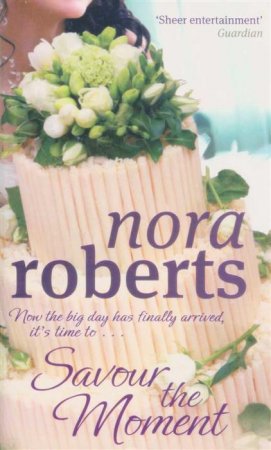 Savour the Moment
Savour the Moment The Perfect Hope
The Perfect Hope Island of Glass
Island of Glass Happy Ever After
Happy Ever After Bed of Roses
Bed of Roses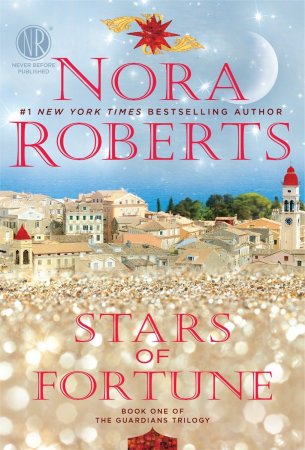 Stars of Fortune
Stars of Fortune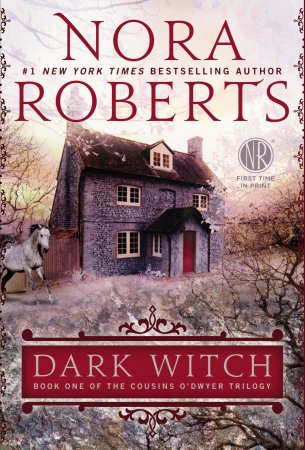 Dark Witch
Dark Witch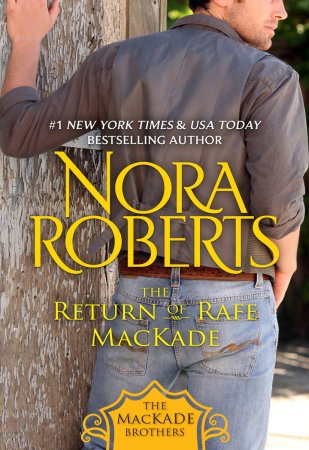 The Return of Rafe MacKade
The Return of Rafe MacKade Chesapeake Blue
Chesapeake Blue The Perfect Neighbor
The Perfect Neighbor The Collector
The Collector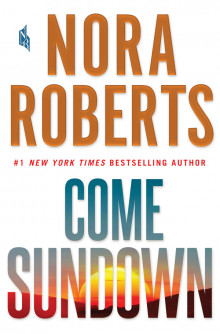 Come Sundown
Come Sundown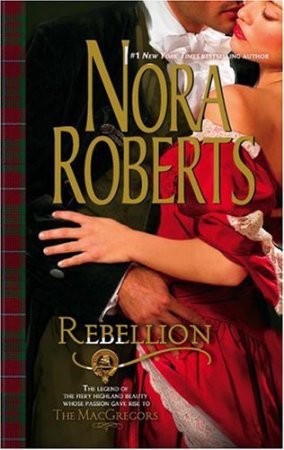 Rebellion
Rebellion Affaire Royale
Affaire Royale Daring to Dream
Daring to Dream Bay of Sighs
Bay of Sighs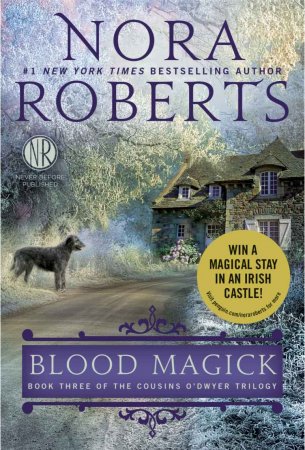 Blood Magick
Blood Magick Angels Fall
Angels Fall Captivated
Captivated The Last Boyfriend
The Last Boyfriend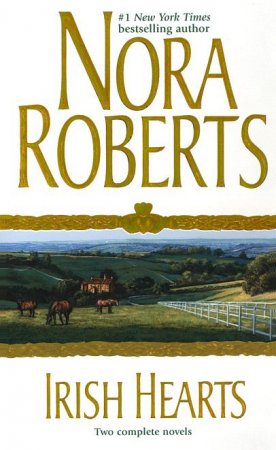 Irish Thoroughbred
Irish Thoroughbred Inner Harbor
Inner Harbor The Right Path
The Right Path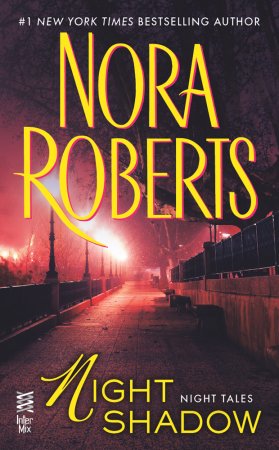 Night Shadow
Night Shadow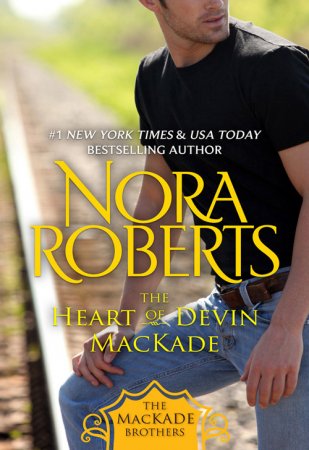 The Heart of Devin MacKade
The Heart of Devin MacKade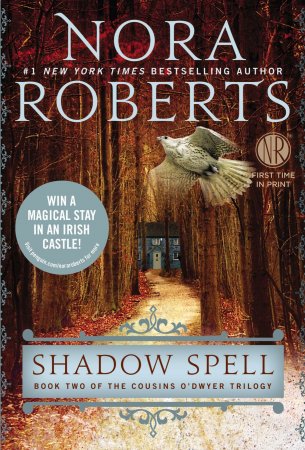 Shadow Spell
Shadow Spell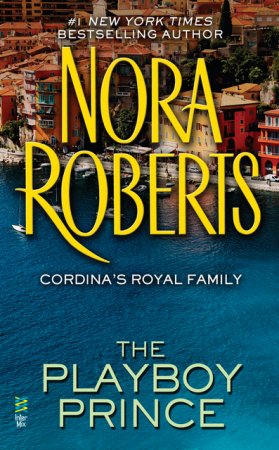 The Playboy Prince
The Playboy Prince The Fall of Shane MacKade
The Fall of Shane MacKade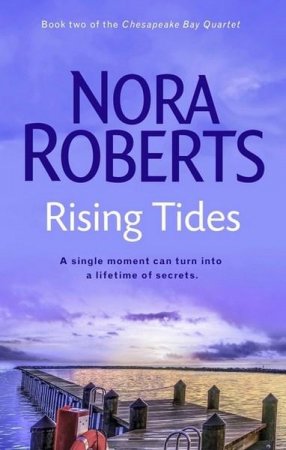 Rising Tides
Rising Tides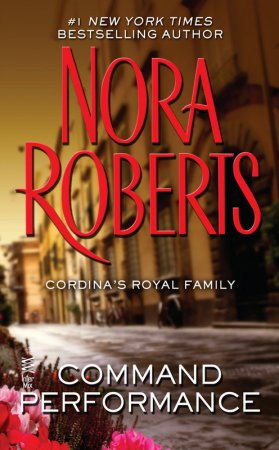 Command Performance
Command Performance Hidden Star
Hidden Star Cordina's Crown Jewel
Cordina's Crown Jewel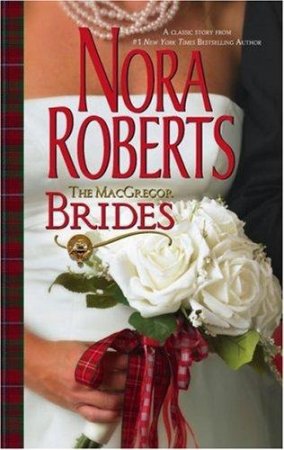 The MacGregor Brides
The MacGregor Brides The Pride of Jared MacKade
The Pride of Jared MacKade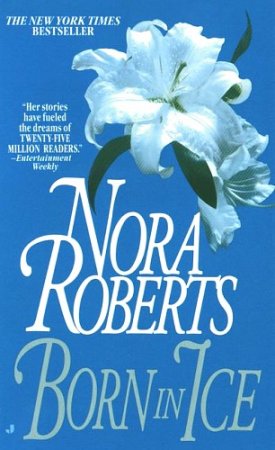 Born in Ice
Born in Ice Whiskey Beach
Whiskey Beach The Last Honest Woman
The Last Honest Woman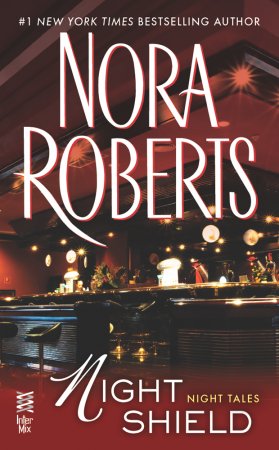 Night Shield
Night Shield Born in Shame
Born in Shame Secret Star
Secret Star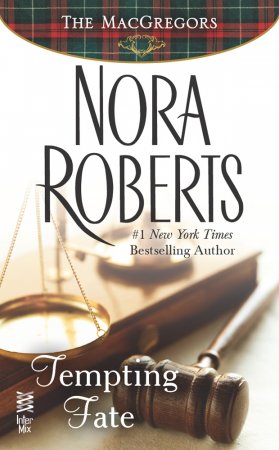 Tempting Fate
Tempting Fate Nightshade
Nightshade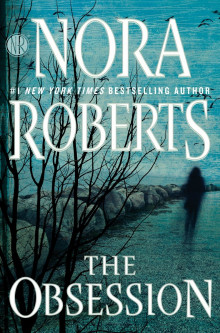 The Obsession
The Obsession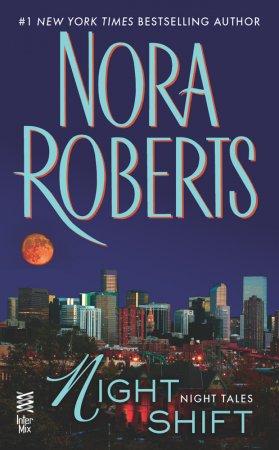 Night Shift
Night Shift Playing The Odds
Playing The Odds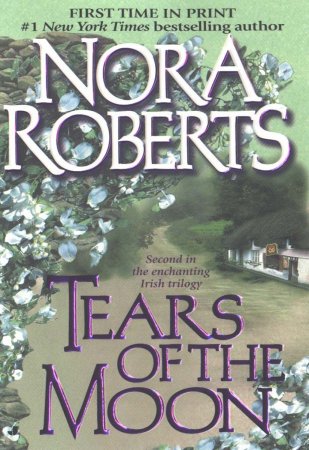 Tears of the Moon
Tears of the Moon One Man's Art
One Man's Art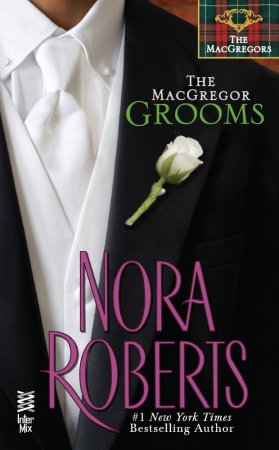 The MacGregor Groom
The MacGregor Groom Irish Rebel
Irish Rebel Morrigan's Cross
Morrigan's Cross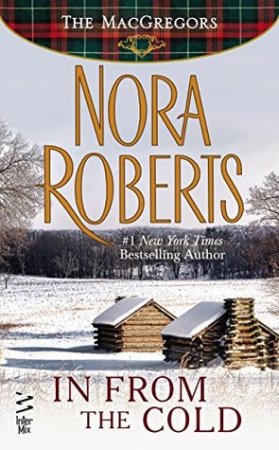 In From The Cold
In From The Cold Night Smoke
Night Smoke Finding the Dream
Finding the Dream Red Lily
Red Lily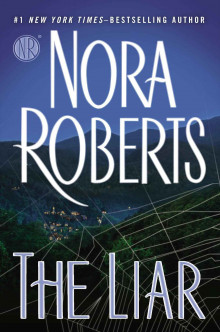 The Liar
The Liar Montana Sky
Montana Sky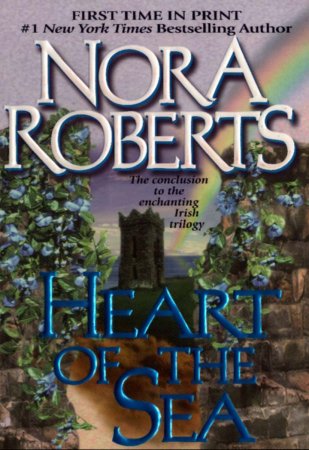 Heart of the Sea
Heart of the Sea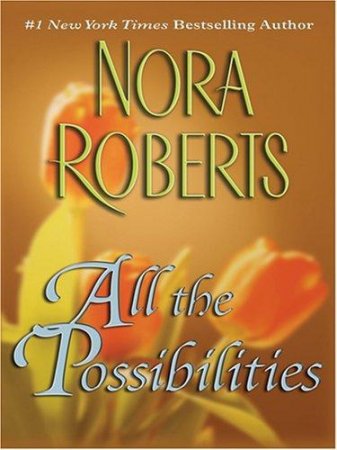 All The Possibilities
All The Possibilities Opposites Attract
Opposites Attract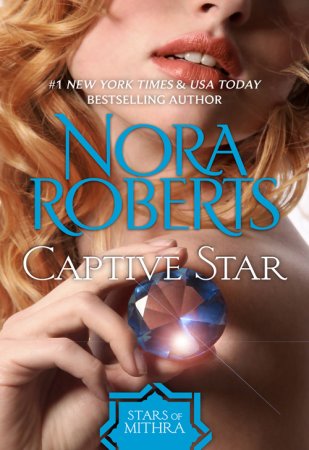 Captive Star
Captive Star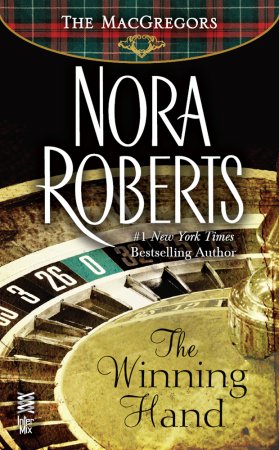 The Winning Hand
The Winning Hand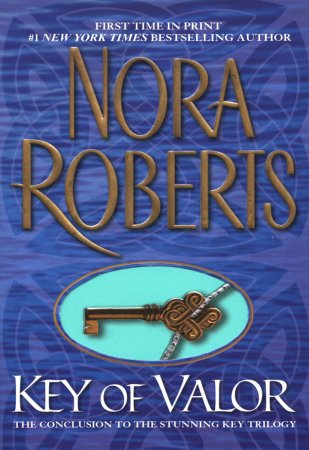 Key of Valor
Key of Valor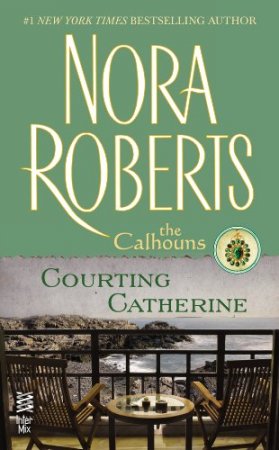 Courting Catherine
Courting Catherine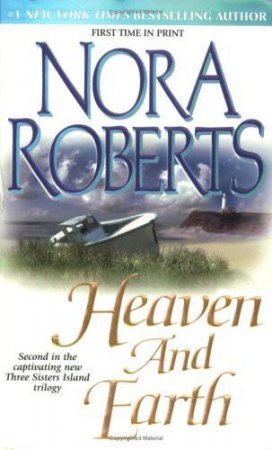 Heaven and Earth
Heaven and Earth Face the Fire
Face the Fire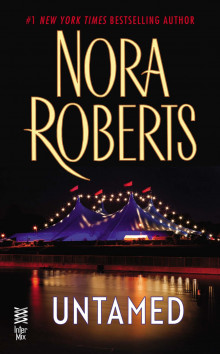 Untamed
Untamed Skin Deep
Skin Deep Enchanted
Enchanted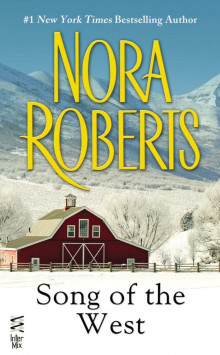 Song of the West
Song of the West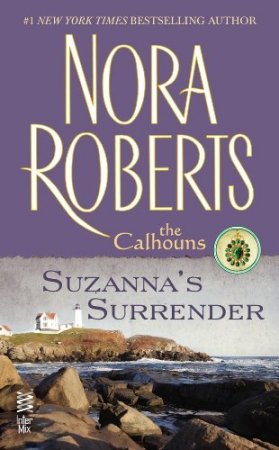 Suzanna's Surrender
Suzanna's Surrender Entranced
Entranced Dance of the Gods
Dance of the Gods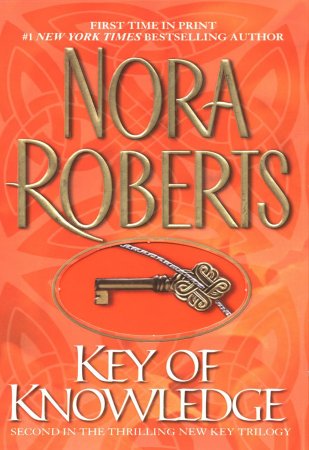 Key of Knowledge
Key of Knowledge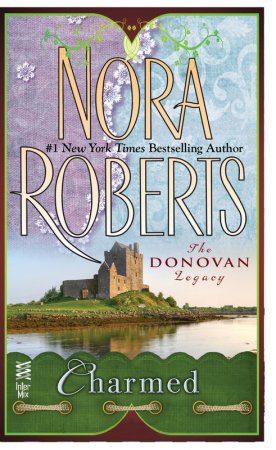 Charmed
Charmed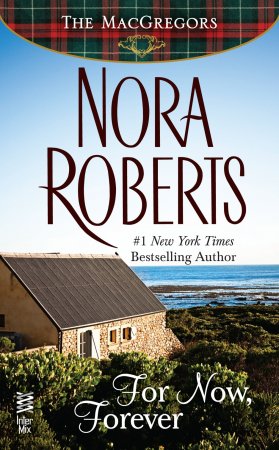 For Now, Forever
For Now, Forever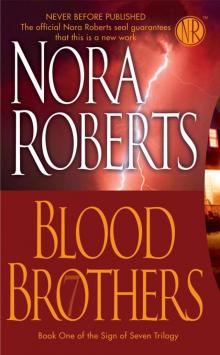 Blood Brothers
Blood Brothers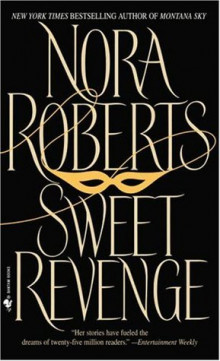 Sweet Revenge
Sweet Revenge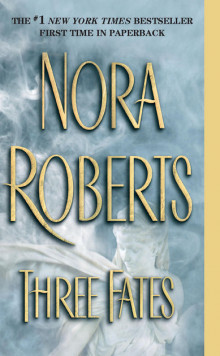 Three Fates
Three Fates Mind Over Matter
Mind Over Matter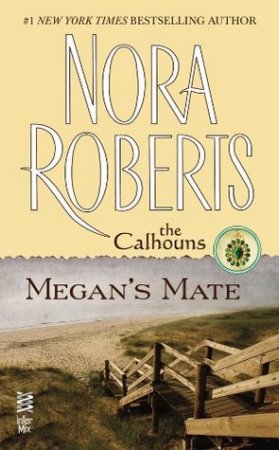 Megan's Mate
Megan's Mate Valley of Silence
Valley of Silence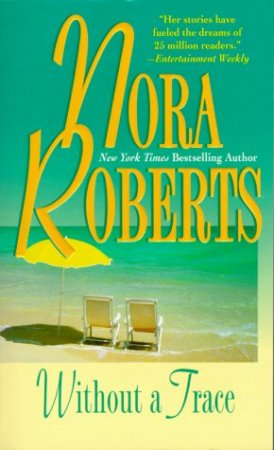 Without A Trace
Without A Trace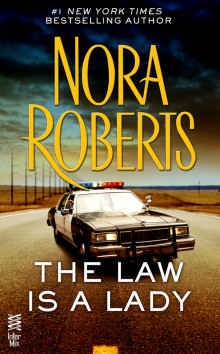 The Law is a Lady
The Law is a Lady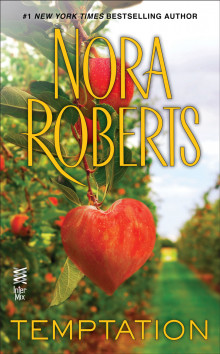 Temptation
Temptation Dance to the Piper
Dance to the Piper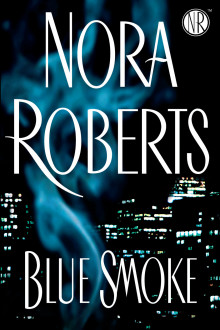 Blue Smoke
Blue Smoke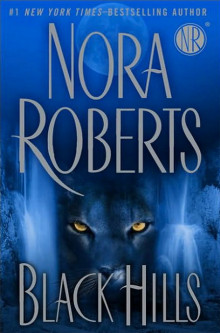 Black Hills
Black Hills The Heart's Victory
The Heart's Victory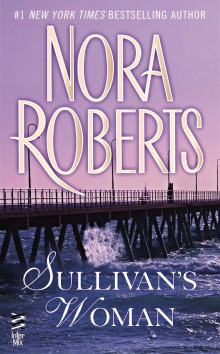 Sullivan's Woman
Sullivan's Woman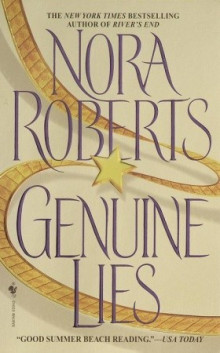 Genuine Lies
Genuine Lies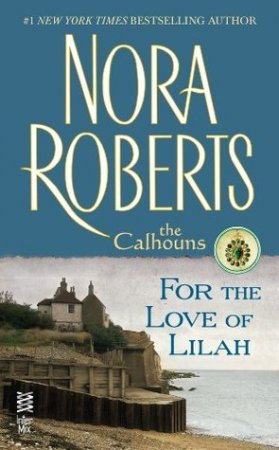 For the Love of Lilah
For the Love of Lilah Gabriel's Angel
Gabriel's Angel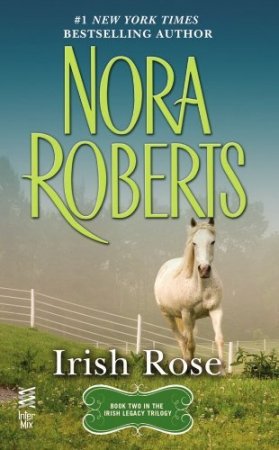 Irish Rose
Irish Rose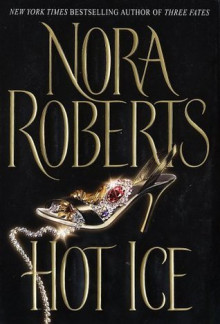 Hot Ice
Hot Ice Dual Image
Dual Image Lawless
Lawless Catch My Heart
Catch My Heart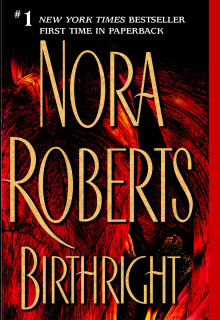 Birthright
Birthright First Impressions
First Impressions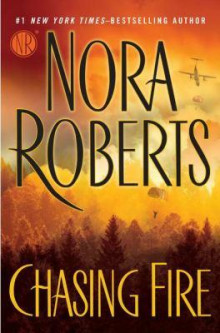 Chasing Fire
Chasing Fire Carnal Innocence
Carnal Innocence Best Laid Plans
Best Laid Plans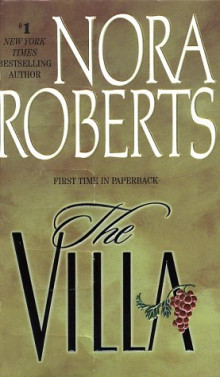 The Villa
The Villa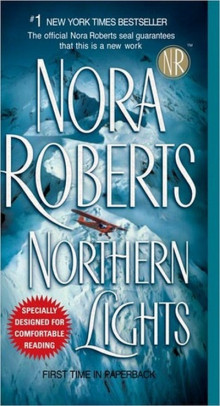 Northern Lights
Northern Lights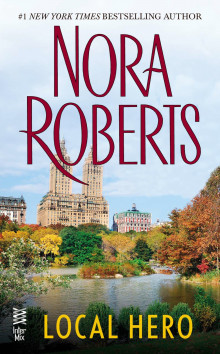 Local Hero
Local Hero Island of Flowers
Island of Flowers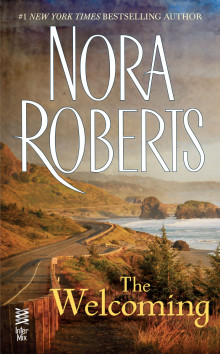 The Welcoming
The Welcoming All I Want for Christmas
All I Want for Christmas Black Rose
Black Rose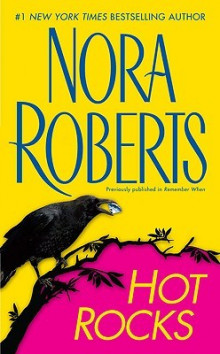 Hot Rocks
Hot Rocks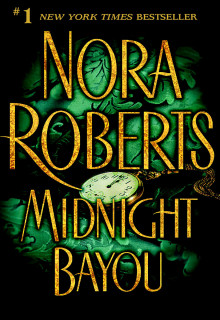 Midnight Bayou
Midnight Bayou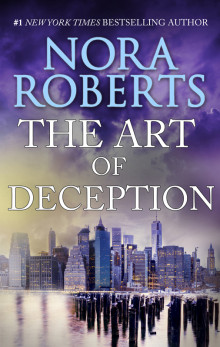 The Art of Deception
The Art of Deception From This Day
From This Day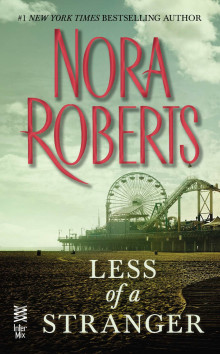 Less of a Stranger
Less of a Stranger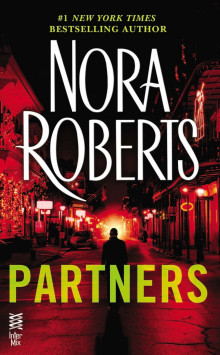 Partners
Partners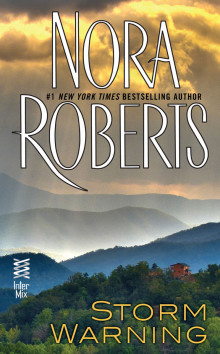 Storm Warning
Storm Warning Once More With Feeling
Once More With Feeling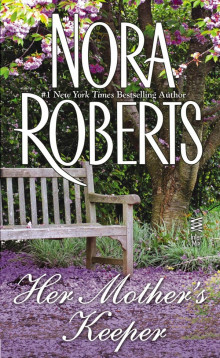 Her Mother's Keeper
Her Mother's Keeper Sacred Sins
Sacred Sins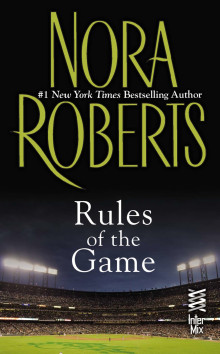 Rules of the Game
Rules of the Game Sanctuary
Sanctuary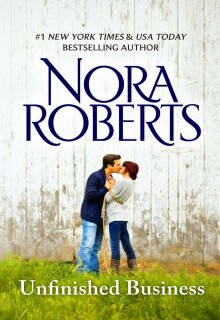 Unfinished Business
Unfinished Business Cordina's Royal Family Collection
Cordina's Royal Family Collection Dangerous Embrace
Dangerous Embrace One Summer
One Summer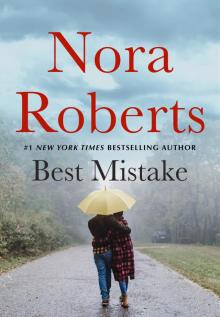 The Best Mistake
The Best Mistake Boundary Lines
Boundary Lines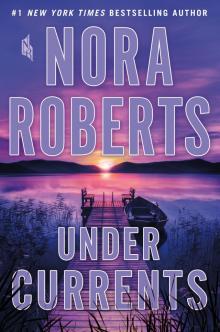 Under Currents
Under Currents The Stanislaski Series Collection, Volume 1
The Stanislaski Series Collection, Volume 1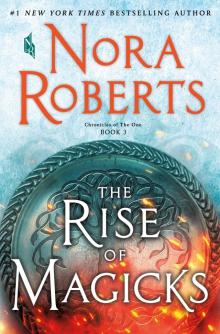 The Rise of Magicks
The Rise of Magicks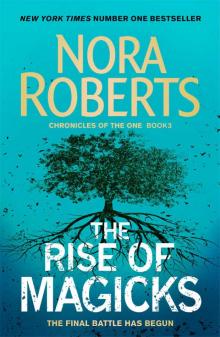 The Rise of Magicks (Chronicles of The One)
The Rise of Magicks (Chronicles of The One)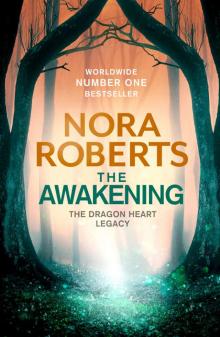 The Awakening: The Dragon Heart Legacy Book 1
The Awakening: The Dragon Heart Legacy Book 1 Dance of Dreams
Dance of Dreams Skin Deep: The O'Hurleys
Skin Deep: The O'Hurleys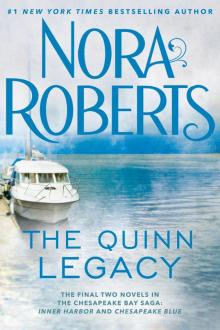 The Quinn Legacy: Inner Harbor ; Chesapeake Blue
The Quinn Legacy: Inner Harbor ; Chesapeake Blue![[Chronicles of the One 03.0] The Rise of Magicks Read online](http://i1.bookreadfree.com/11/chronicles_of_the_one_03_0_the_rise_of_magicks_preview.jpg) [Chronicles of the One 03.0] The Rise of Magicks
[Chronicles of the One 03.0] The Rise of Magicks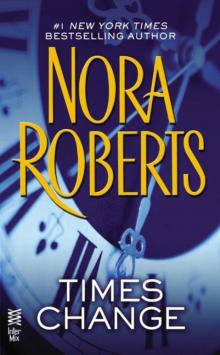 Times Change
Times Change Dance to the Piper: The O'Hurleys
Dance to the Piper: The O'Hurleys Christmas In the Snow: Taming Natasha / Considering Kate
Christmas In the Snow: Taming Natasha / Considering Kate Waiting for Nick
Waiting for Nick Summer Desserts
Summer Desserts Dream 2 - Holding the Dream
Dream 2 - Holding the Dream The Novels of Nora Roberts, Volume 2
The Novels of Nora Roberts, Volume 2 In the Garden Trilogy
In the Garden Trilogy Eight Classic Nora Roberts Romantic Suspense Novels
Eight Classic Nora Roberts Romantic Suspense Novels Best Laid Plans jh-2
Best Laid Plans jh-2 From the Heart
From the Heart Holiday Wishes
Holiday Wishes Dream 1 - Daring to Dream
Dream 1 - Daring to Dream Second Nature
Second Nature Summer Pleasures
Summer Pleasures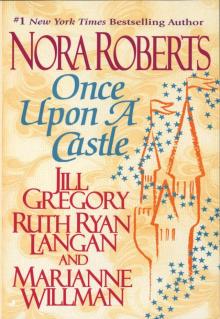 Once Upon a Castle
Once Upon a Castle Stars of Mithra Box Set: Captive StarHidden StarSecret Star
Stars of Mithra Box Set: Captive StarHidden StarSecret Star Impulse
Impulse The Irish Trilogy by Nora Roberts
The Irish Trilogy by Nora Roberts The Pride Of Jared Mackade tmb-2
The Pride Of Jared Mackade tmb-2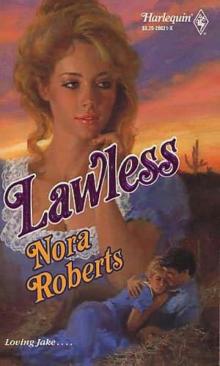 Lawless jh-3
Lawless jh-3 Taming Natasha
Taming Natasha Endless Summer
Endless Summer Bride Quartet Collection
Bride Quartet Collection Happy Ever After tbq-4
Happy Ever After tbq-4 Heart Of The Sea goa-3
Heart Of The Sea goa-3 Search for Love
Search for Love Once upon a Dream
Once upon a Dream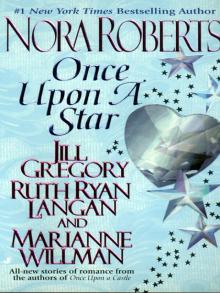 Once Upon a Star
Once Upon a Star Dream Trilogy
Dream Trilogy Risky Business
Risky Business The Novels of Nora Roberts, Volume 3
The Novels of Nora Roberts, Volume 3 Dream 3 - Finding the Dream
Dream 3 - Finding the Dream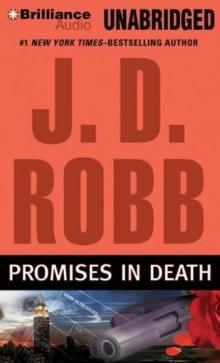 Promises in Death id-34
Promises in Death id-34 The Novels of Nora Roberts, Volume 4
The Novels of Nora Roberts, Volume 4 The Perfect Hope ib-3
The Perfect Hope ib-3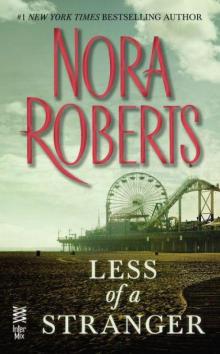 Less than a Stranger
Less than a Stranger Savour the Moment: Now the Big Day Has Finally Arrived, It's Time To...
Savour the Moment: Now the Big Day Has Finally Arrived, It's Time To... Convincing Alex
Convincing Alex Bed of Roses tbq-2
Bed of Roses tbq-2 Savour the Moment tbq-3
Savour the Moment tbq-3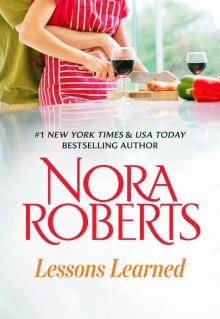 Lessons Learned
Lessons Learned Key Of Valor k-3
Key Of Valor k-3 Red lily gt-3
Red lily gt-3 Savor the Moment
Savor the Moment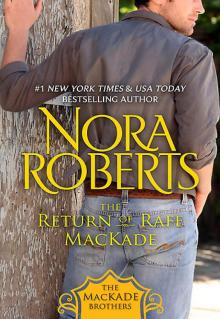 The Return Of Rafe Mackade tmb-1
The Return Of Rafe Mackade tmb-1 For The Love Of Lilah tcw-3
For The Love Of Lilah tcw-3 Black Rose gt-2
Black Rose gt-2 Novels: The Law is a Lady
Novels: The Law is a Lady Chesapeake Bay Saga 1-4
Chesapeake Bay Saga 1-4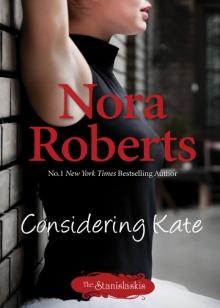 Considering Kate
Considering Kate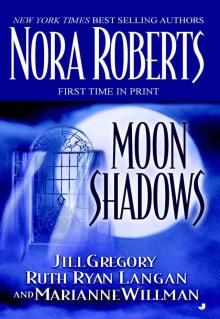 Moon Shadows
Moon Shadows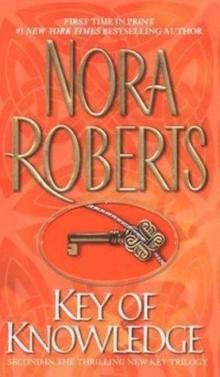 Key of Knowledge k-2
Key of Knowledge k-2 The Sign of Seven Trilogy
The Sign of Seven Trilogy Once Upon a Kiss
Once Upon a Kiss The Novels of Nora Roberts, Volume 5
The Novels of Nora Roberts, Volume 5 Suzanna's Surrender tcw-4
Suzanna's Surrender tcw-4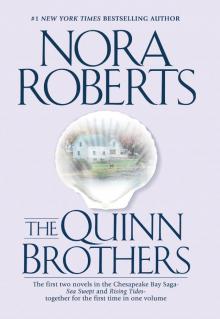 The Quinn Brothers
The Quinn Brothers Falling for Rachel
Falling for Rachel Brazen Virtue
Brazen Virtue Time Was
Time Was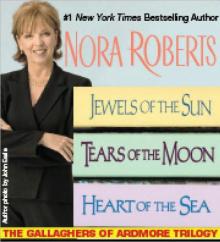 The Gallaghers of Ardmore Trilogy
The Gallaghers of Ardmore Trilogy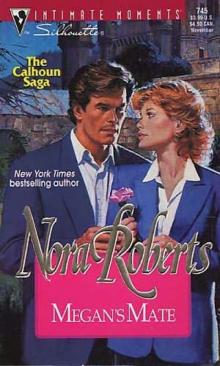 Megan's Mate tcw-5
Megan's Mate tcw-5 Loving Jack jh-1
Loving Jack jh-1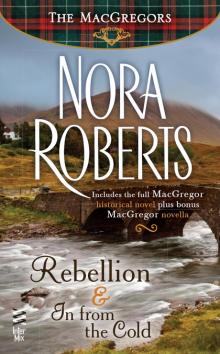 Rebellion & In From The Cold
Rebellion & In From The Cold Blue Dahlia gt-1
Blue Dahlia gt-1 The MacGregor Grooms
The MacGregor Grooms The Next Always tibt-1
The Next Always tibt-1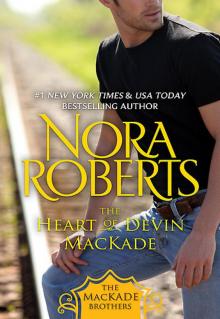 The Heart Of Devin Mackade tmb-3
The Heart Of Devin Mackade tmb-3 The Novels of Nora Roberts Volume 1
The Novels of Nora Roberts Volume 1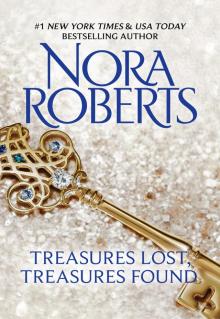 Treasures Lost, Treasures Found
Treasures Lost, Treasures Found Nora Roberts's Circle Trilogy
Nora Roberts's Circle Trilogy The Key Trilogy
The Key Trilogy The Fall Of Shane Mackade tmb-4
The Fall Of Shane Mackade tmb-4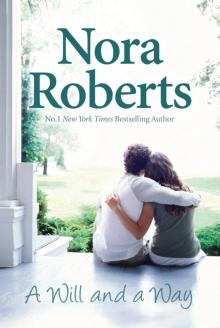 A Will And A Way
A Will And A Way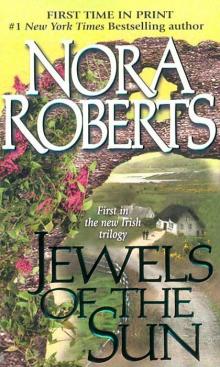 Jewels of the Sun goa-1
Jewels of the Sun goa-1 Luring a Lady
Luring a Lady